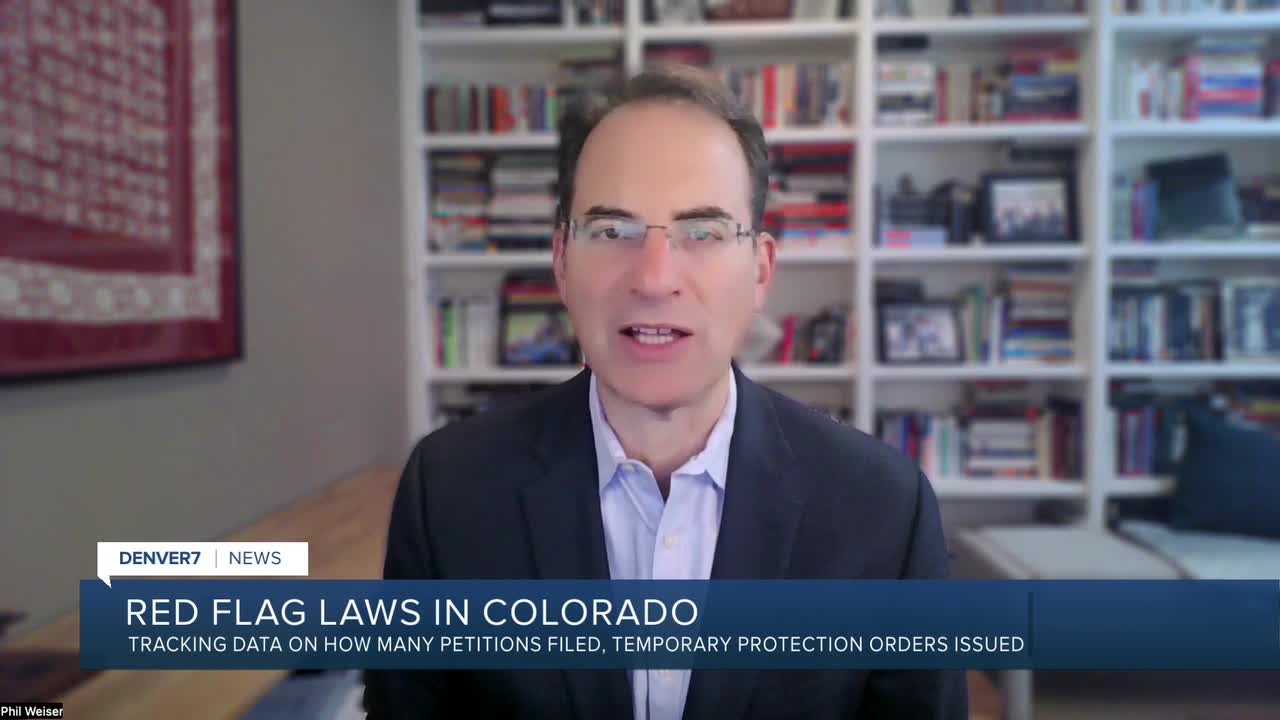DENVER — Monday's mass shooting in New York City is raising concerns for some about the ability of people with serious mental health issues to access guns.
Colorado has "red flag" laws, which give authorities the power to take guns away from people who threaten to kill. A 2022 Associated Press report shows Colorado had one of the lowest application rates of the law.
We're starting to see those trends change, specifically with extreme risk protection orders (ERPOs), which allow a court to temporarily take guns away from someone who is posing an extreme risk to themselves or someone else. ERPOs are typically in effect for two weeks.
"In general, when you have a circumstance, the two weeks — which is really just the basic temporary — is rarely going to be enough," Colorado Attorney General Phil Weiser told Denver7. "It's possible that that's all that's needed, but more likely, there will be a longer period, and then the court will reassess after that period whether or not there's any continuing justification to keep a firearm outside of someone who might be a danger to themselves or others."
Weiser's office analyzes every single ERPO, he said, and makes a public report. In 2020, the first year the law was in effect, publicly available data shows that of the 96 temporary ERPO petitions filed, 64 were granted.
"And what we've seen is year after year, these orders are going up," Weiser said. "In Colorado, when we're building more familiarity and we're working hard to educate law enforcement procedure, we are seeing an increase in usage. We expect that to continue."
In 2023, 125 of the 168 ERPO petitions were granted. Data for 2025 is not yet available.
"The fact that we're seeing a rise in red flag orders is both, more people know about this tool, but yes, it also reflects that we have a lot of threats like gun violence in Colorado," Weiser said. "There are too many people who die by suicide. There are too many people who die from other people shooting. And what happens is people who shouldn't have weapons get them and they're able to then use them in harmful ways."
Weiser calls the red flag law one of the most important gun violence prevention measures the state has. Rocky Mountain Gun Owners, an organization listed as "opposing" the law, disagrees.
In a statement to Denver7, RMGO executive director Ian Escalante said, "Red Flag Laws fly in the face of the principles this country was founded on. They shred due process and are antithetical to the idea of 'innocent until proven guilty.' In the United States, the government cannot take life, liberty, or property without due process of law, which includes a fair trial and a criminal conviction. This is not Russia, nor is it communist China. If the government believes an individual is “too dangerous” to possess a firearm, go through the constitutional process and charge them with a crime. As Colorado’s most significant no-compromise 2nd Amendment Advocacy organization, we are committed to repealing this horrifically anti-American measure."
Weiser said the right to a gun under the Second Amendment is not "absolute."
"This law has regular opportunities for check-ins," the attorney general said. "The order can last no more than one year, up to a year, but it can be reissued if circumstances so justify."







